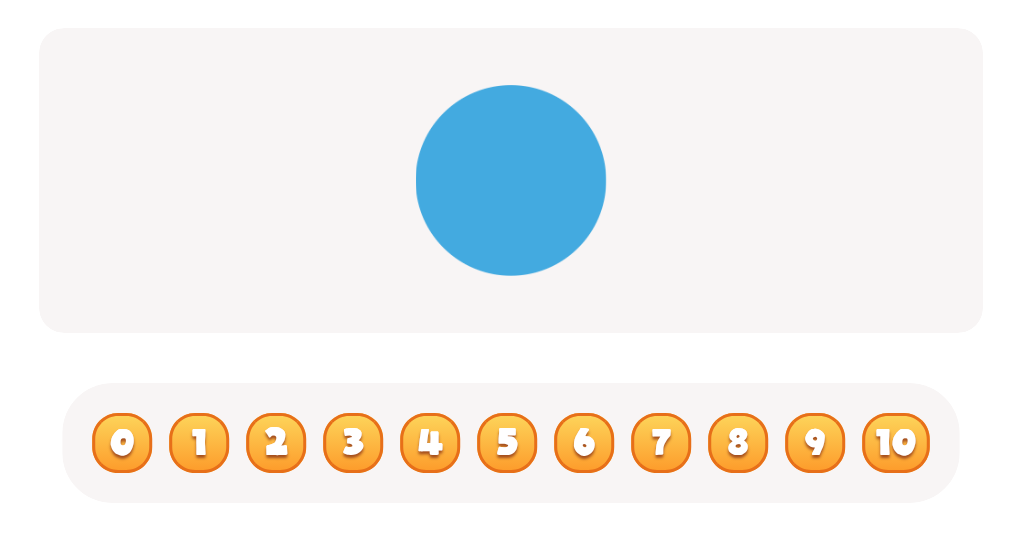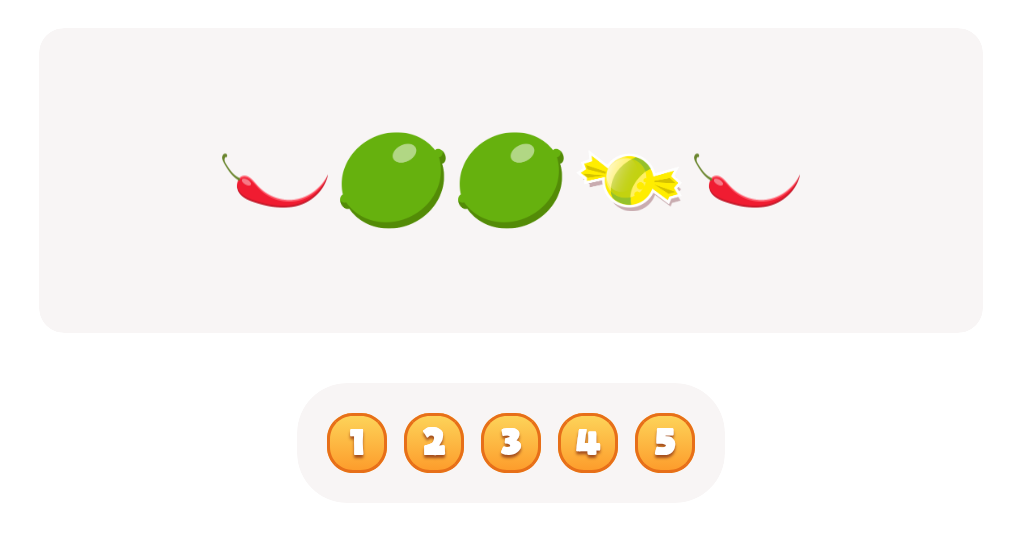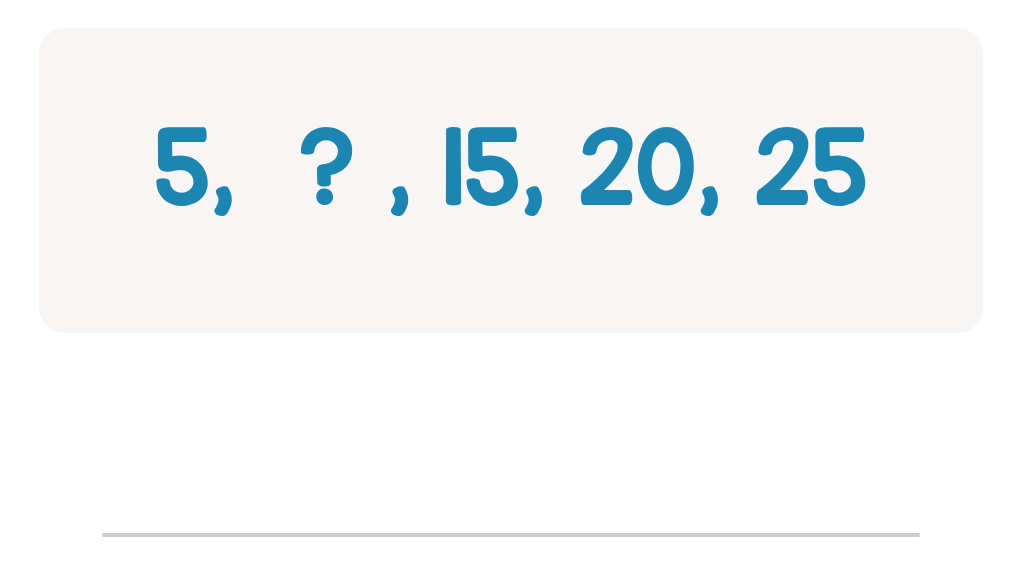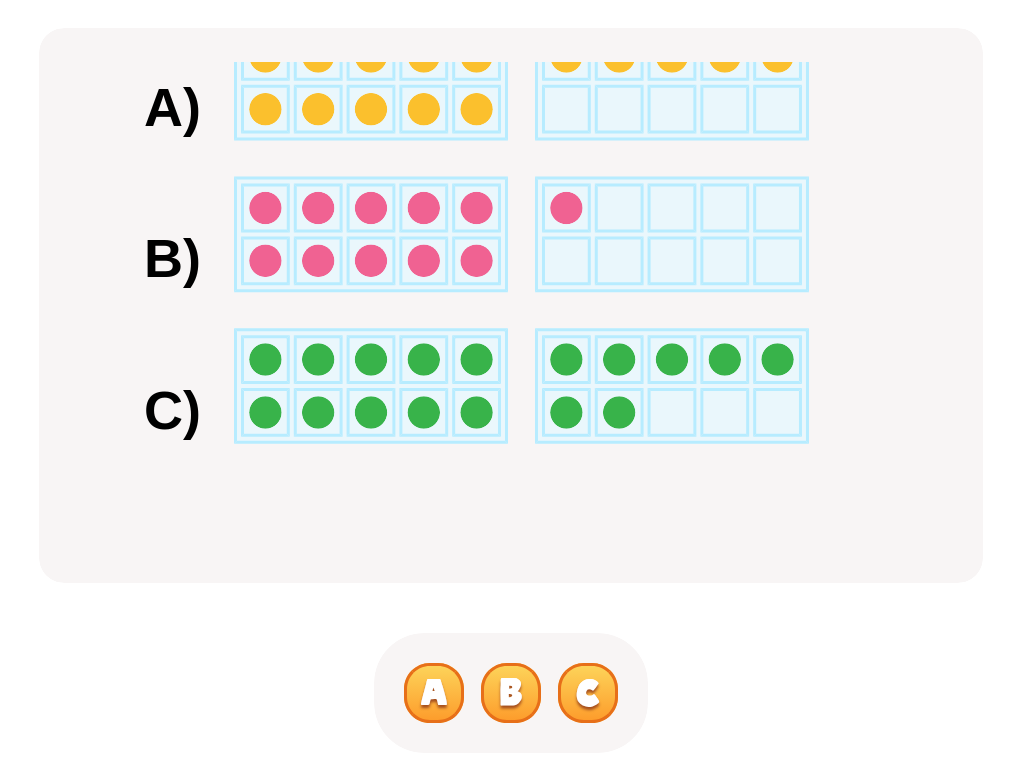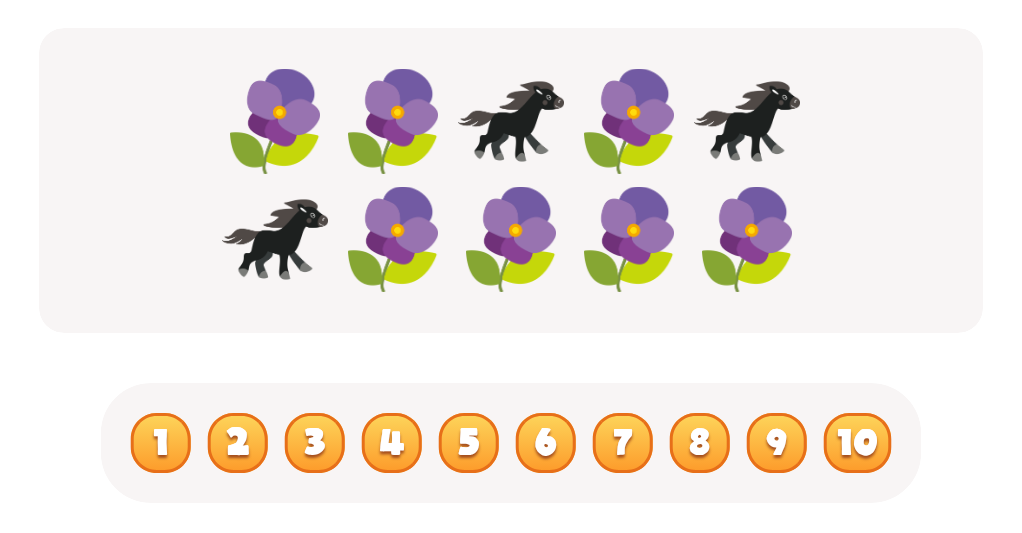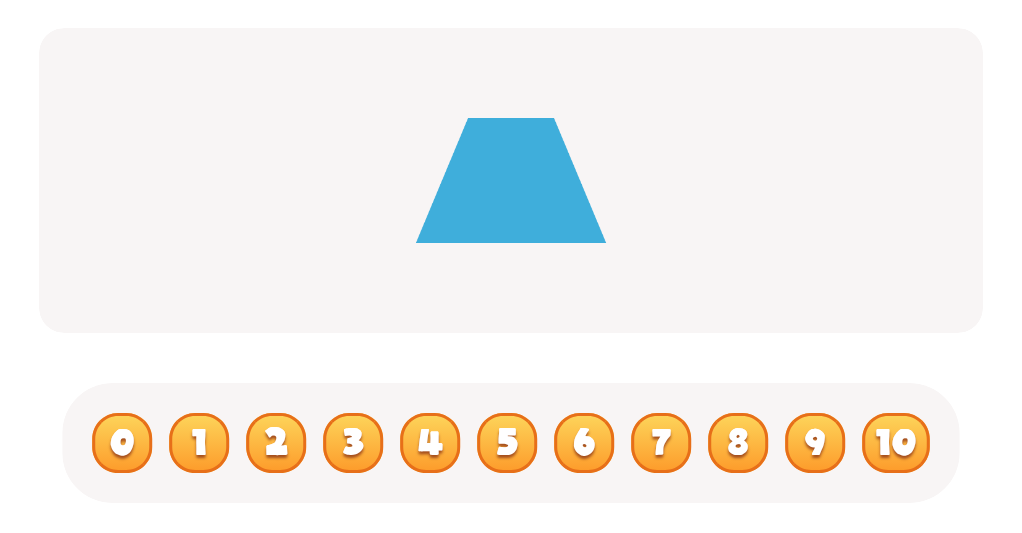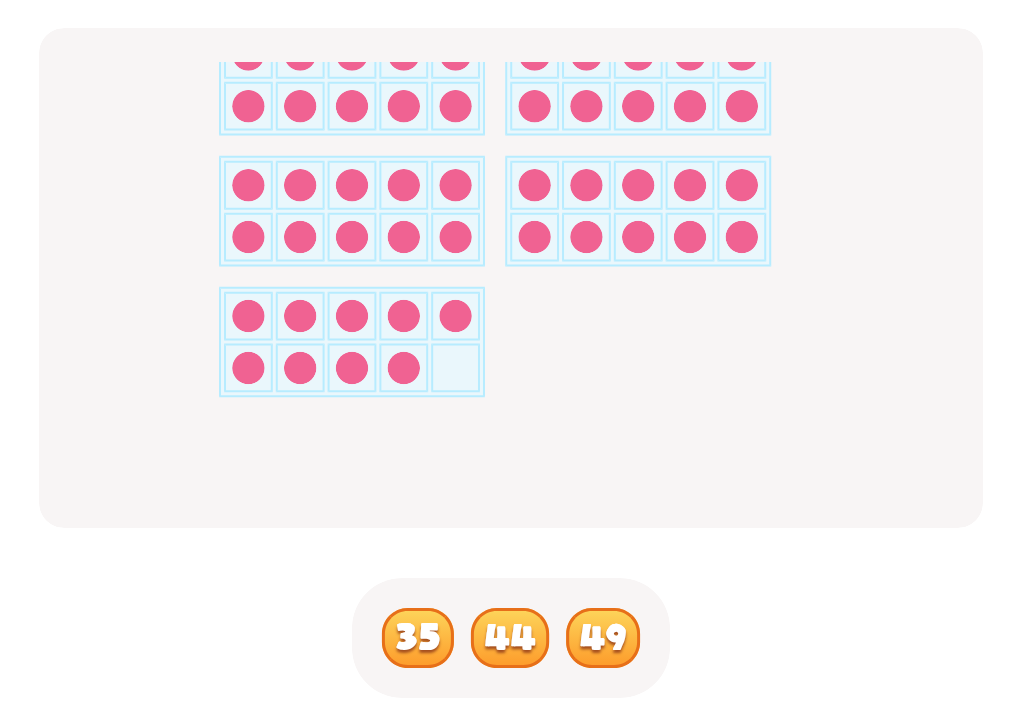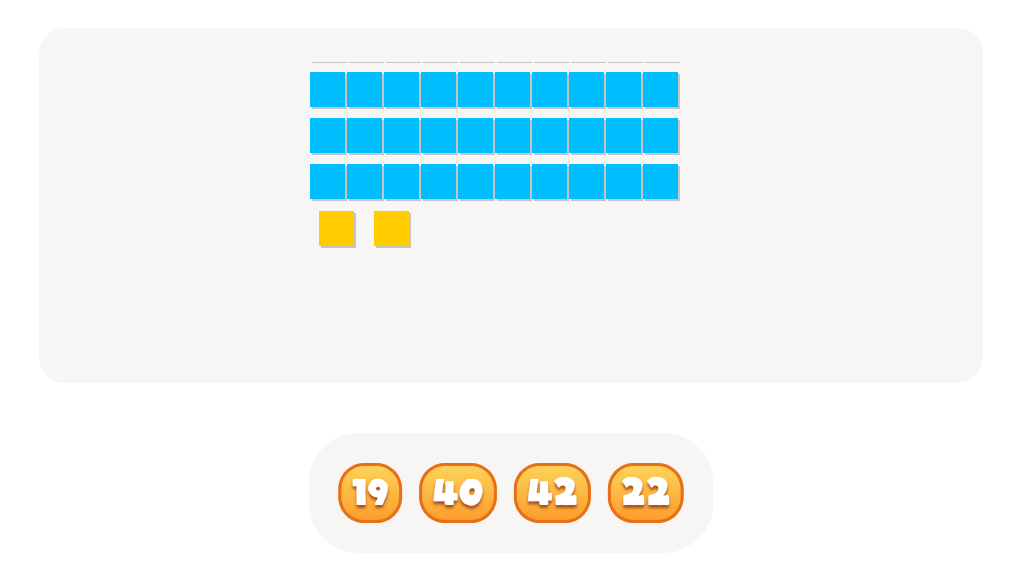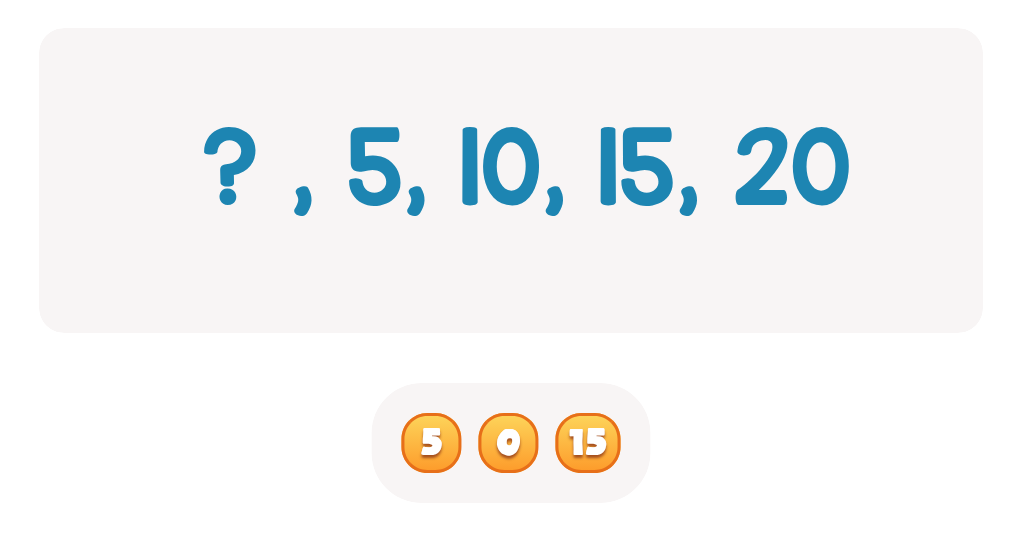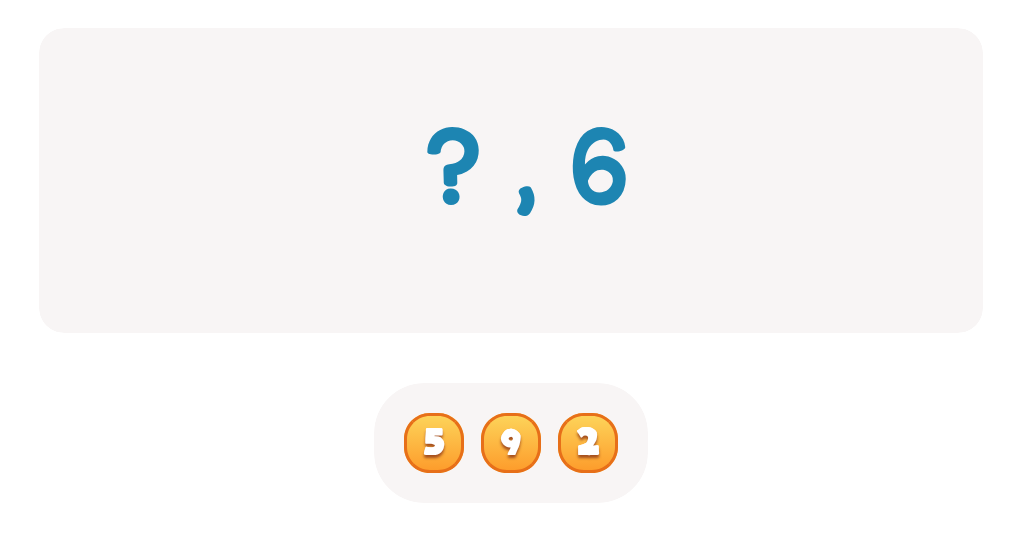Number Recognition Normal Counting Worksheets for Ages 3-9
8 filtered results
-
From - To
Discover our engaging Number Recognition Normal Counting Worksheets, expertly designed for children aged 3 to 9. These resources help young learners develop essential counting skills and recognize numbers in a fun and interactive way. Featuring vibrant illustrations and age-appropriate exercises, our worksheets provide a solid foundation for early numeracy. Children will enjoy various activities that enhance their understanding of numbers while fostering confidence in their counting abilities. Perfect for home use or as part of classroom instruction, our printable worksheets support educational growth and keep students motivated. Join the learning journey and watch your child excel in number recognition today!
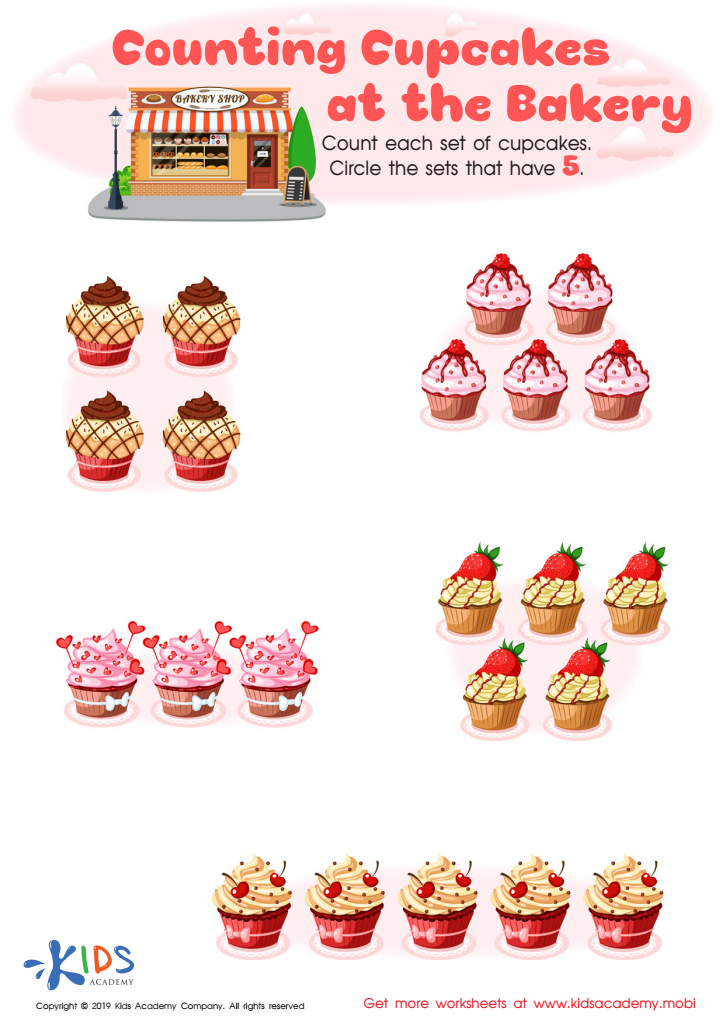

Counting Cupcakes Worksheet
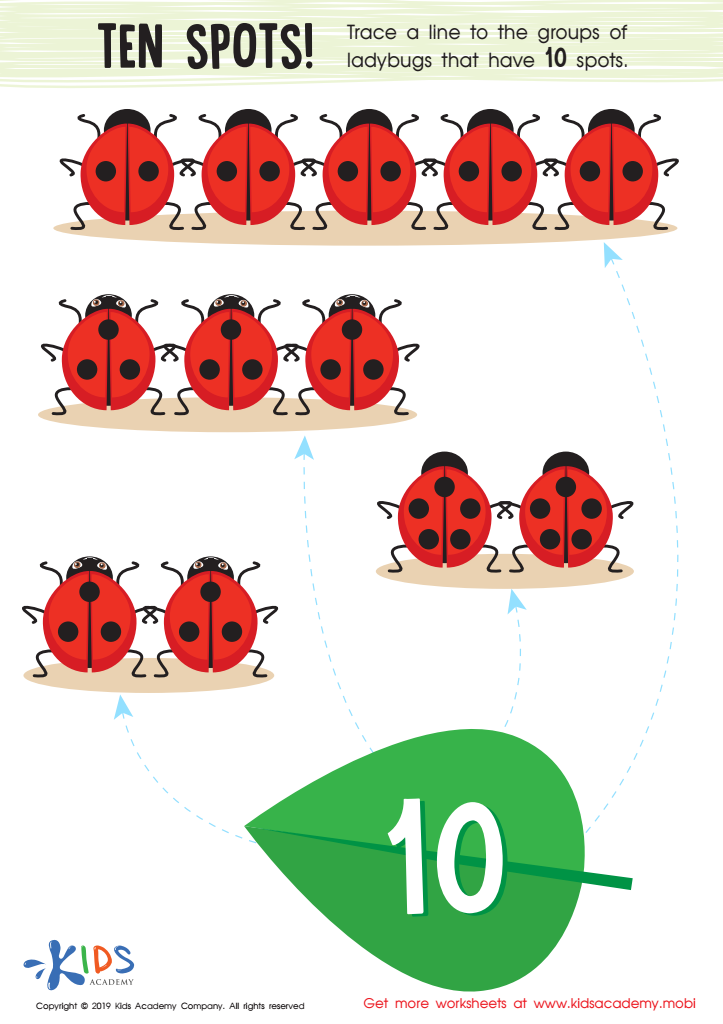

Ten Spots Worksheet
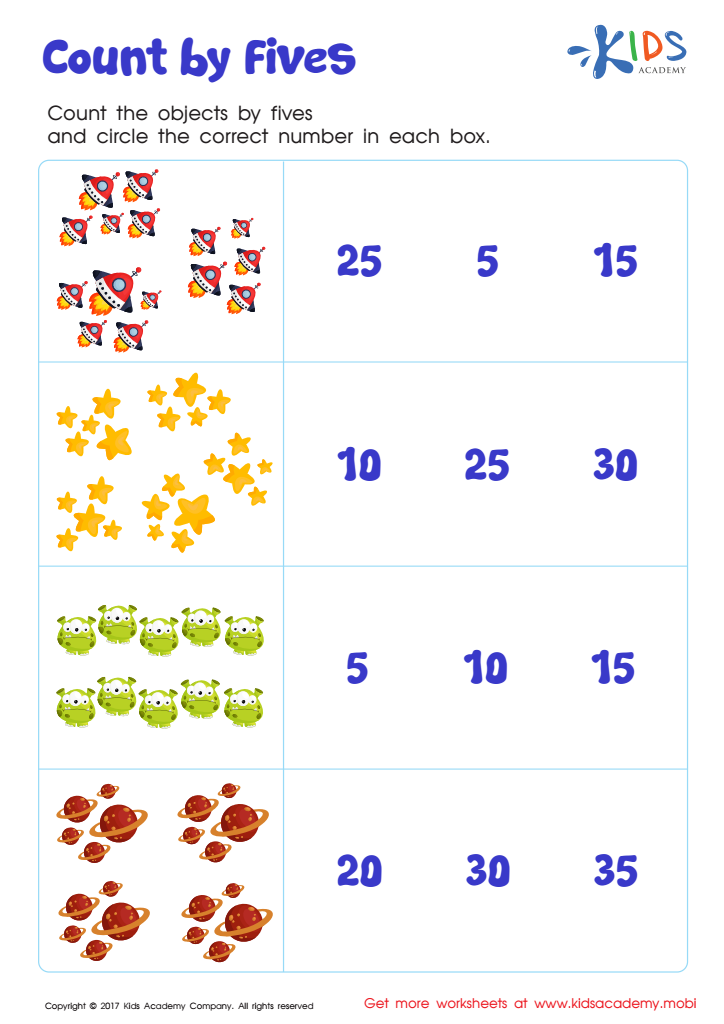

Skip Counting by 5s: Space Math Printable
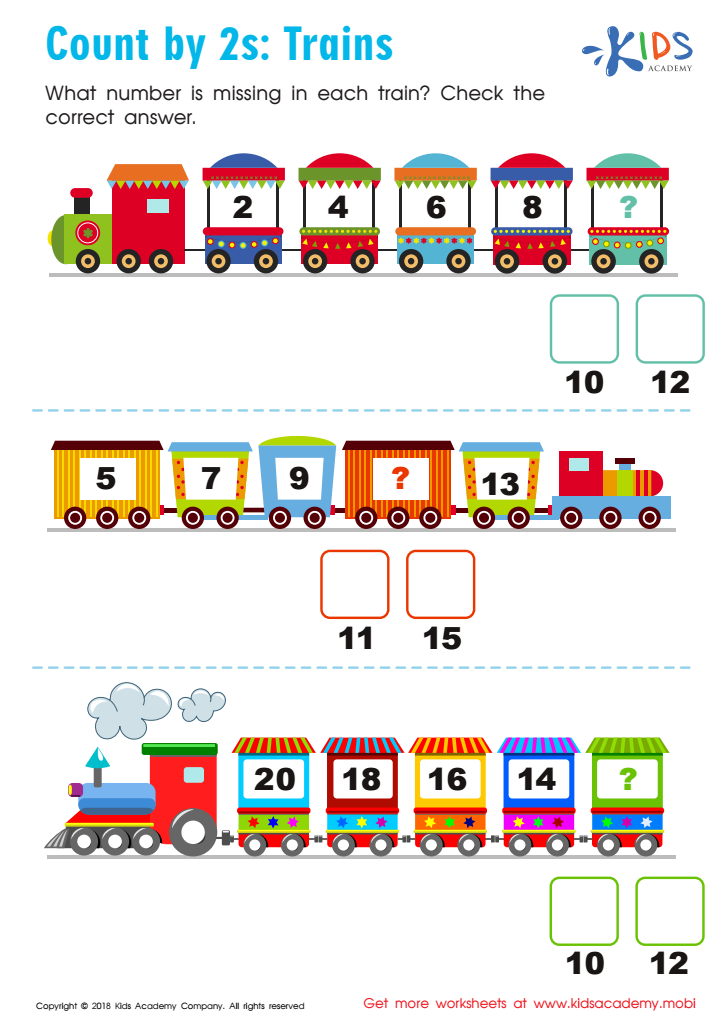

Count by 2's: Trains Worksheet
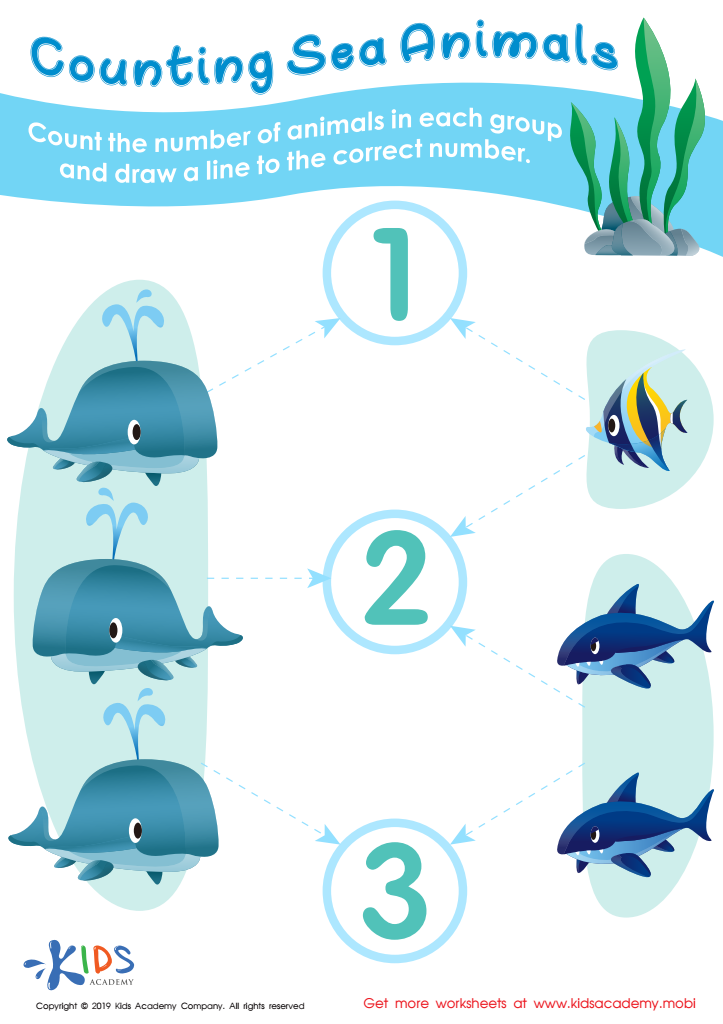

Counting Sea Animals Worksheet


Frog Countdown Worksheet
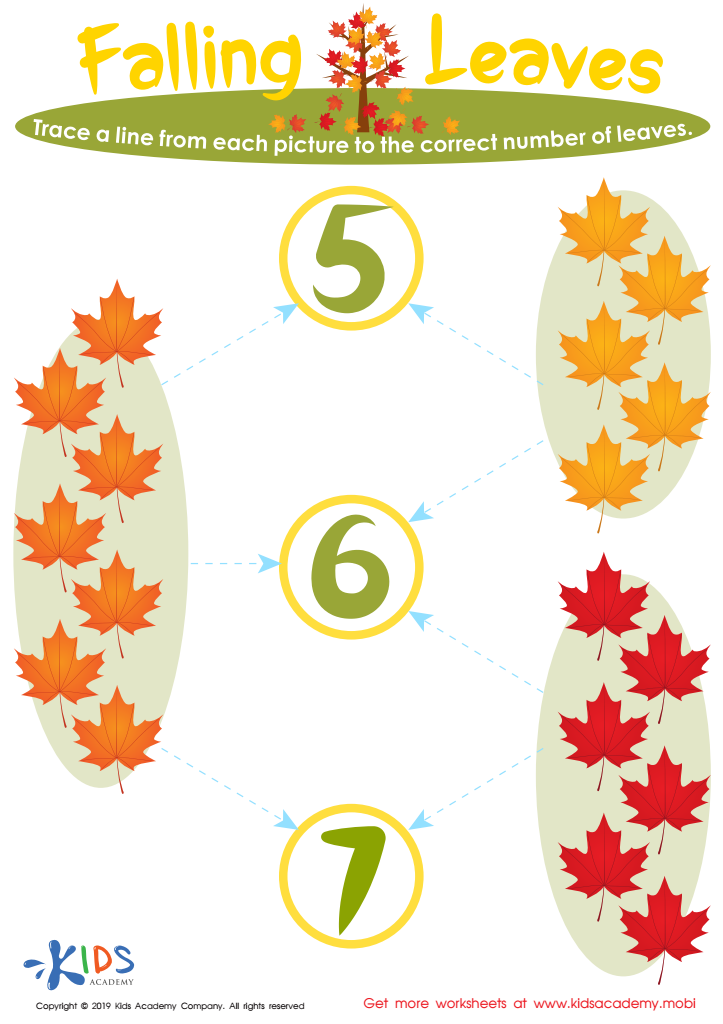

Falling Leaves Worksheet
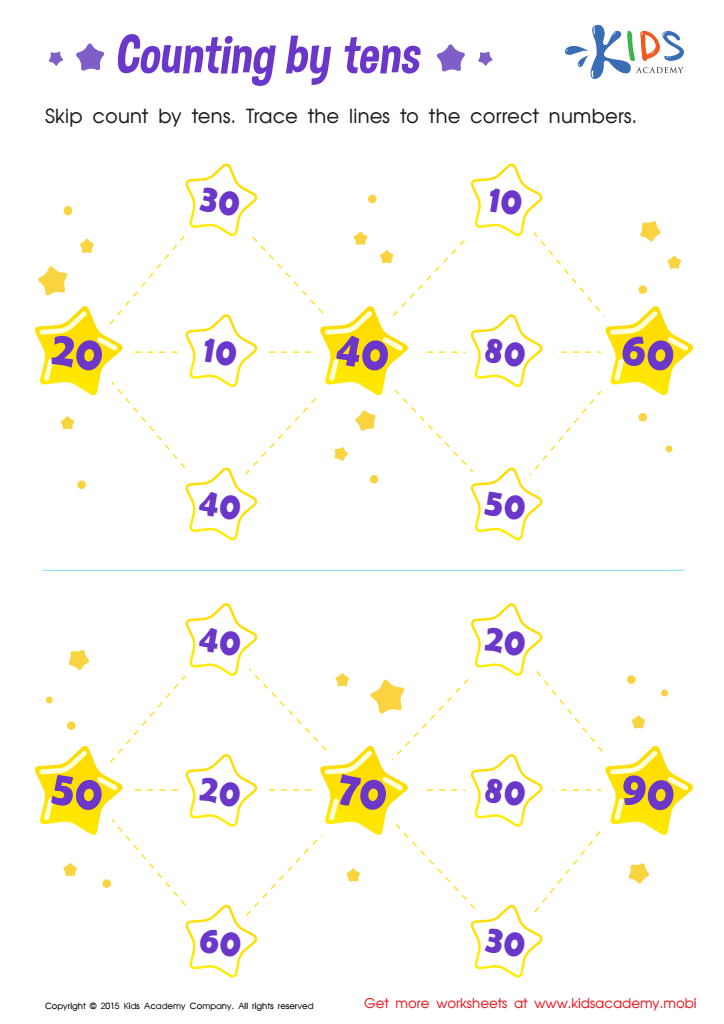

Learn Dozens: Counting by Tens Printable
Number recognition and normal counting are foundational skills essential for children's mathematical development, particularly between the ages of 3 to 9. Parents and teachers should prioritize these skills because they serve as the building blocks for more complex mathematical concepts. Recognizing numbers and counting fosters early numeracy skills, which are linked to later academic success in math.
At this stage, children beginning to differentiate between numbers improves their cognitive abilities, encouraging logical thinking and problem-solving. Moreover, these skills boost a child’s confidence in their ability to handle math-related tasks, reducing anxiety around numbers in later grades. Active engagement in counting helps children develop fine motor skills and memory, reinforcing language acquisition as they verbalize numbers.
Early introduction to number recognition through fun, interactive activities—like counting toys or singing number songs—can make learning enjoyable and effective. These activities help children associate numbers with quantities, enhancing their understanding of basic arithmetic. Importantly, children who master these skills early tend to perform better in school, emphasizing that investing time in number recognition and counting could provide lasting benefits in their educational journey. Therefore, fostering these early math skills should be a priority for both parents and educators.
 Assign to My Students
Assign to My Students
